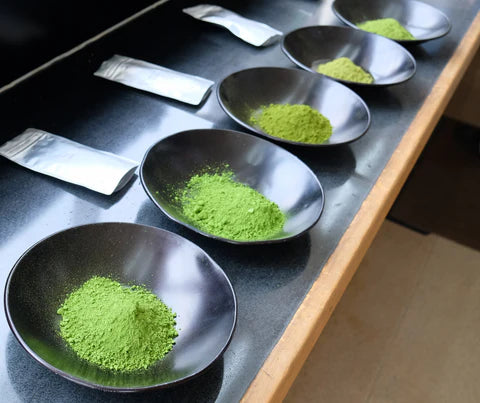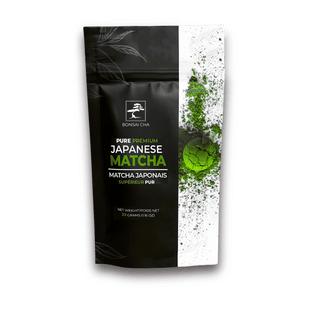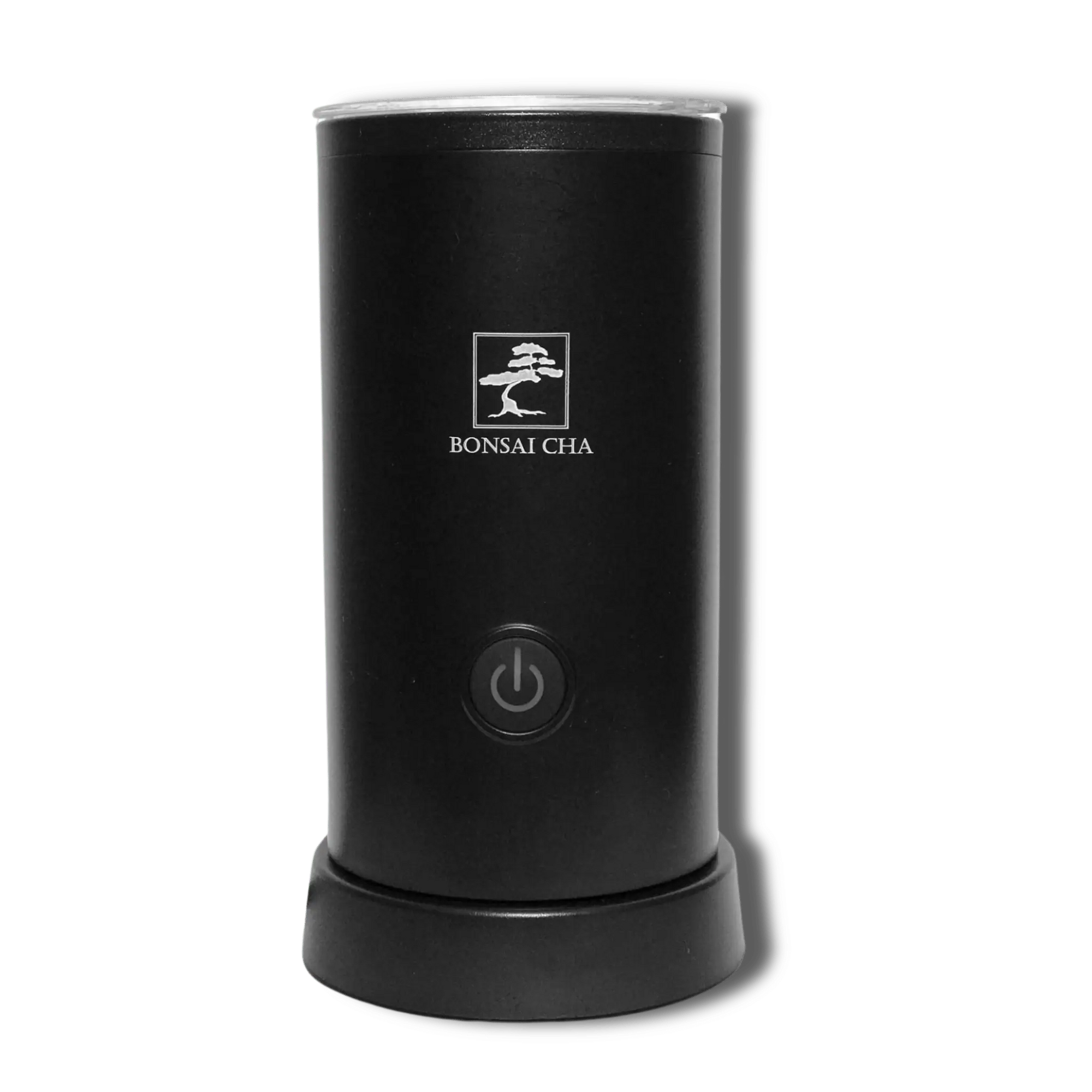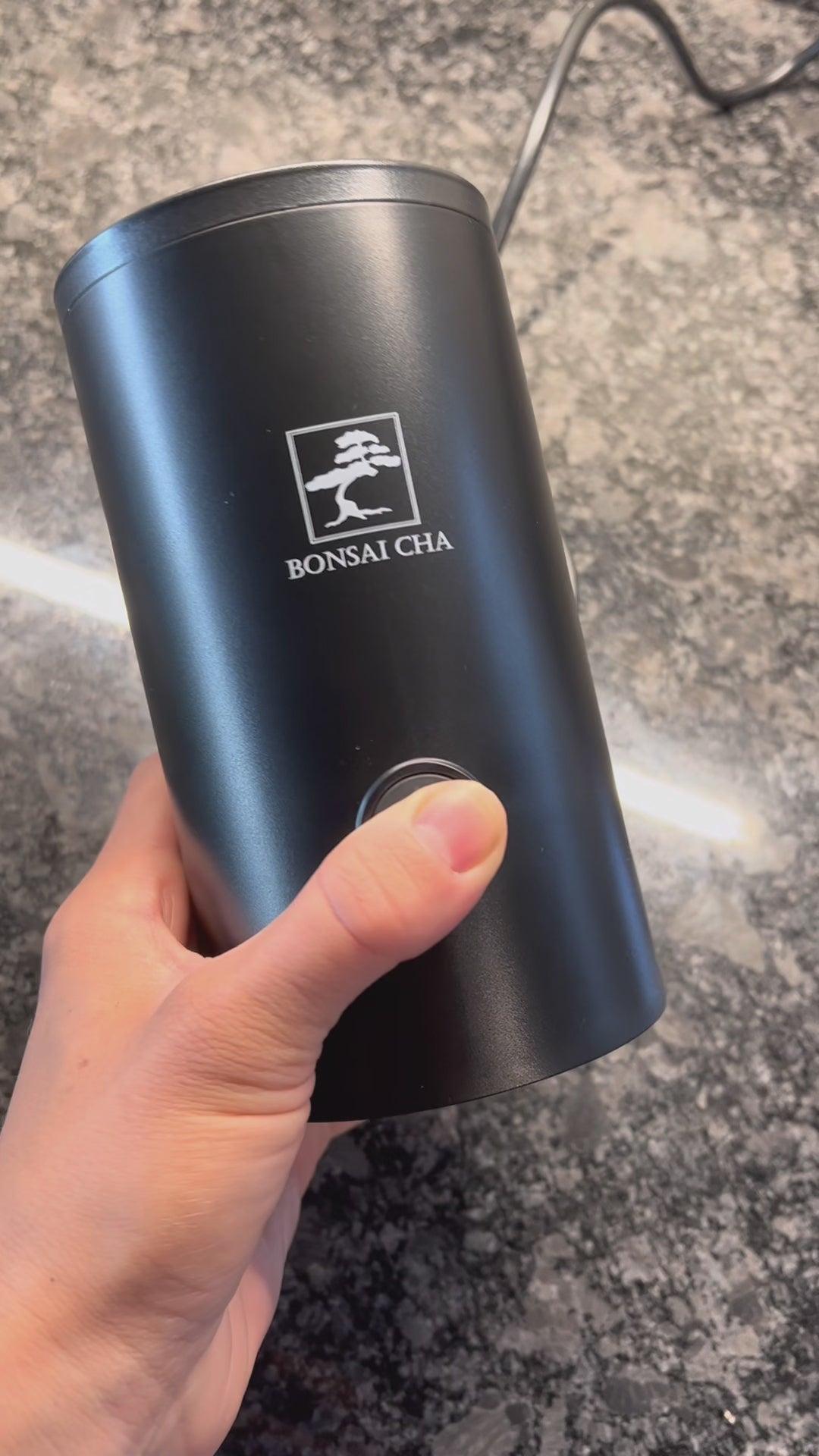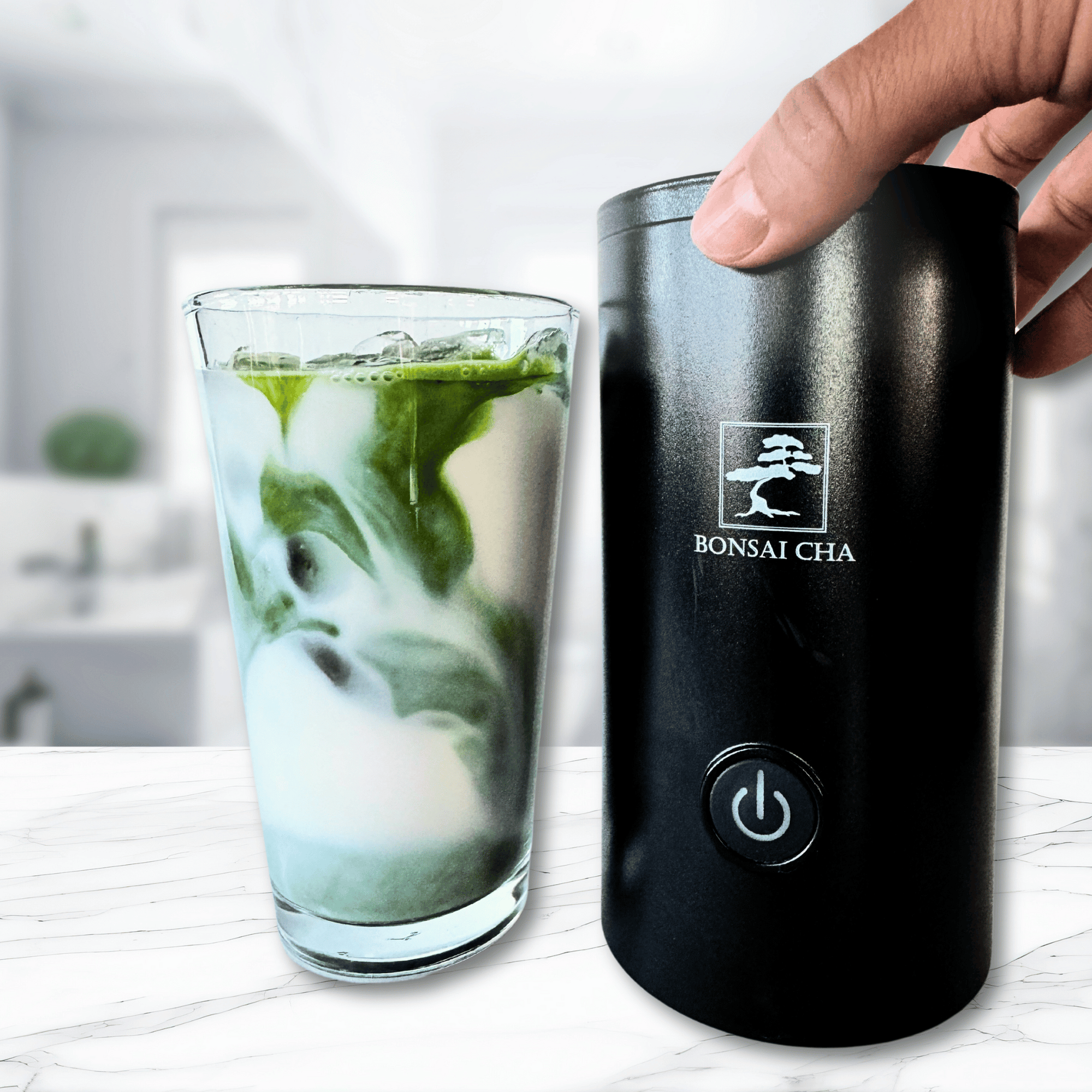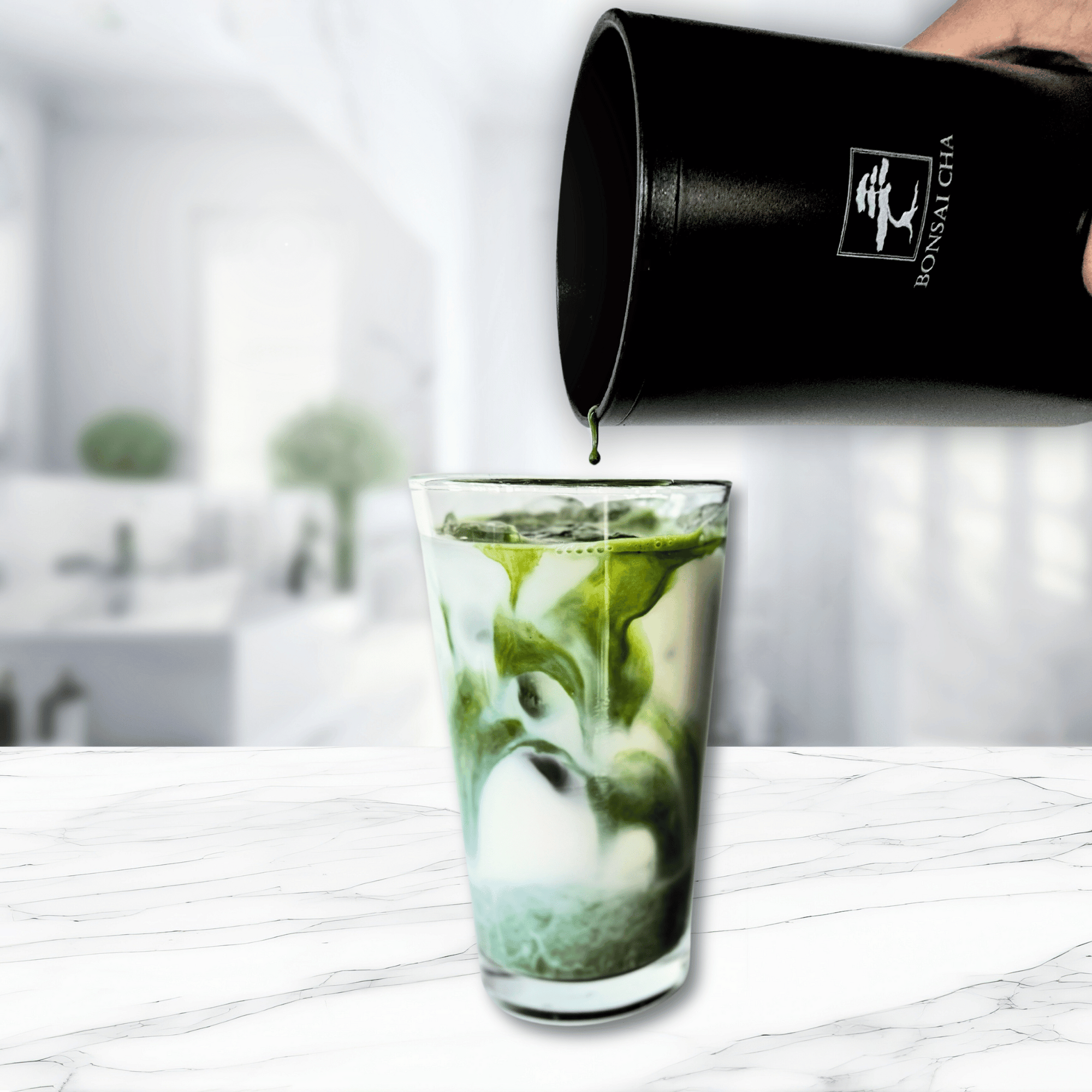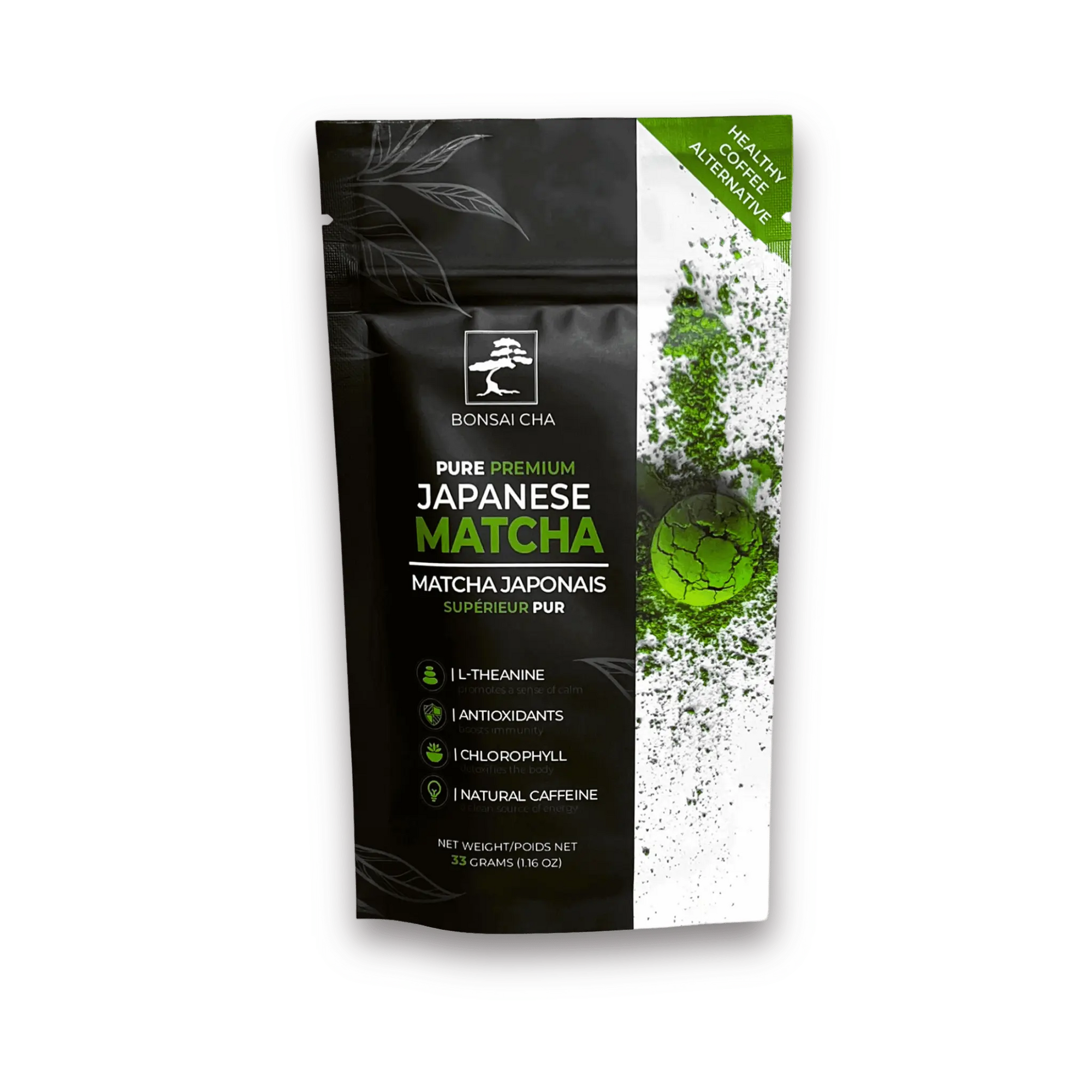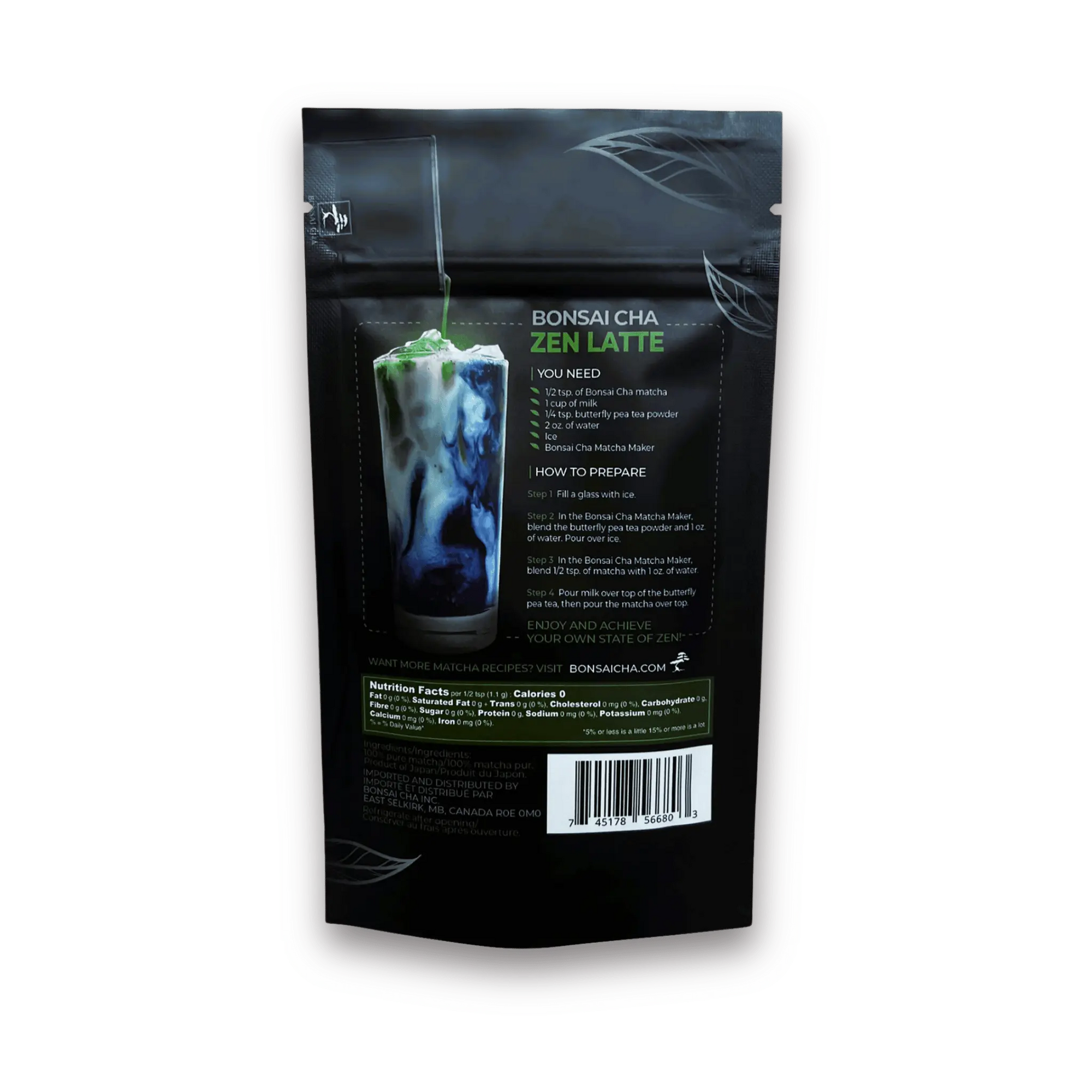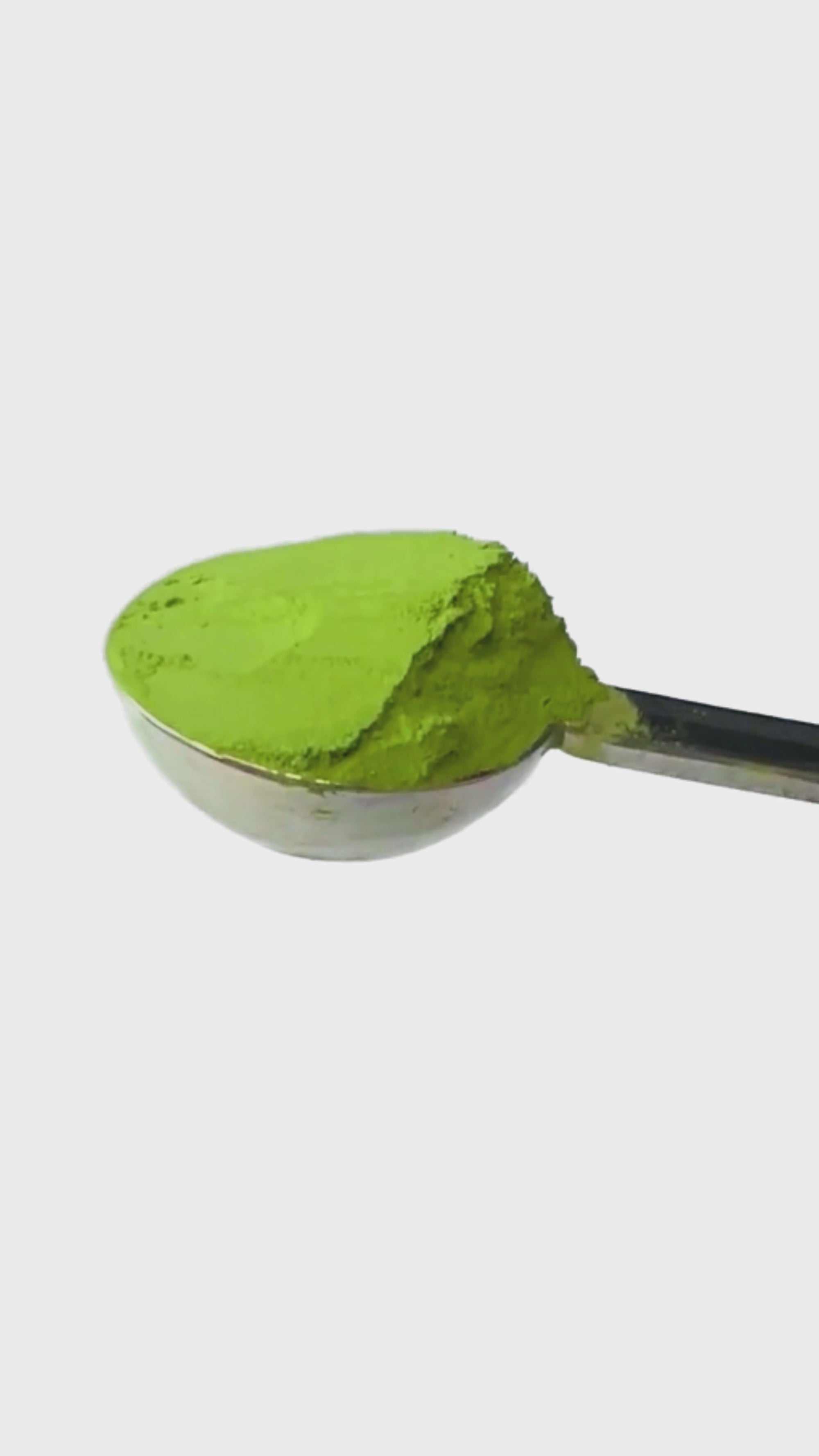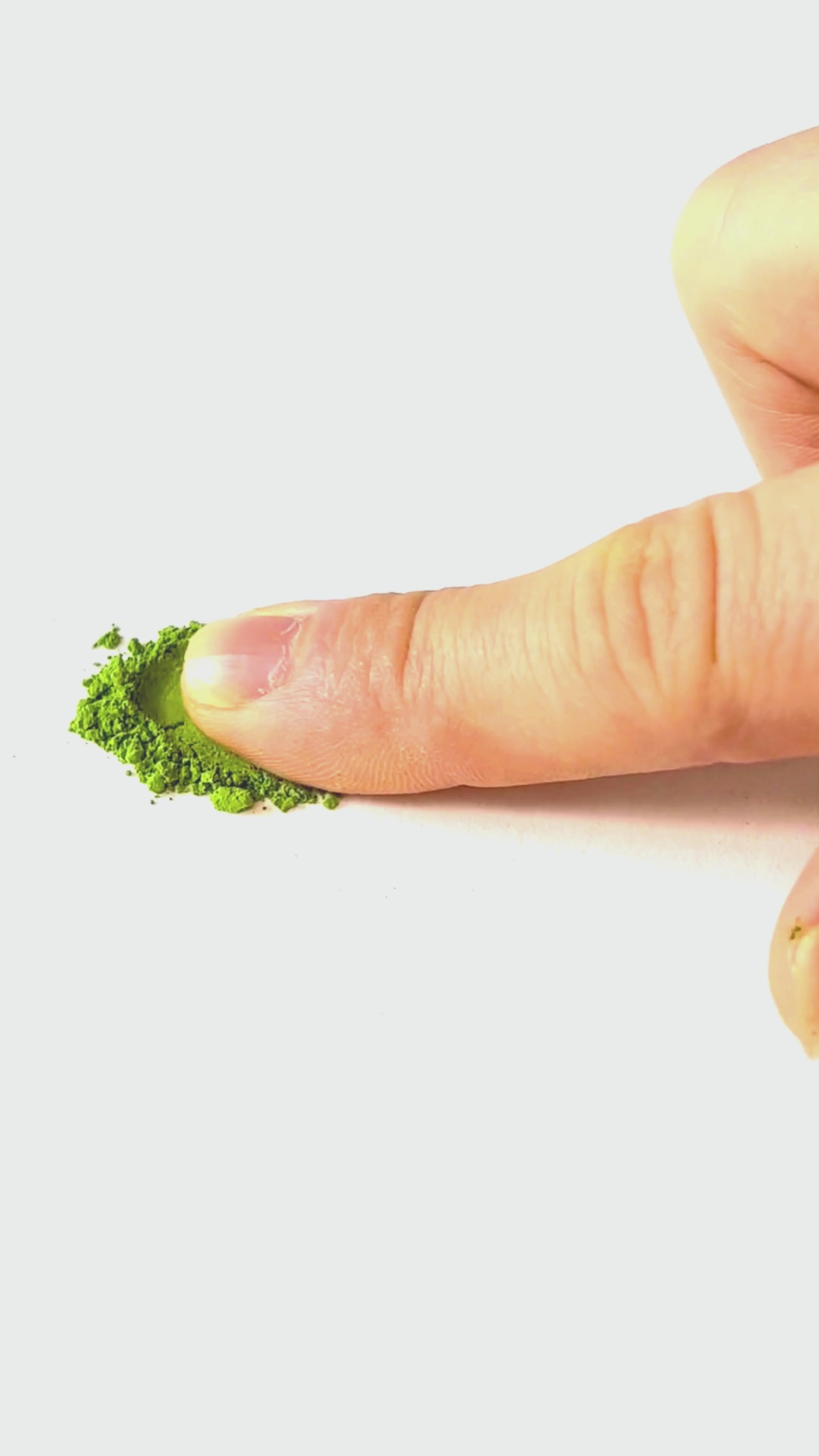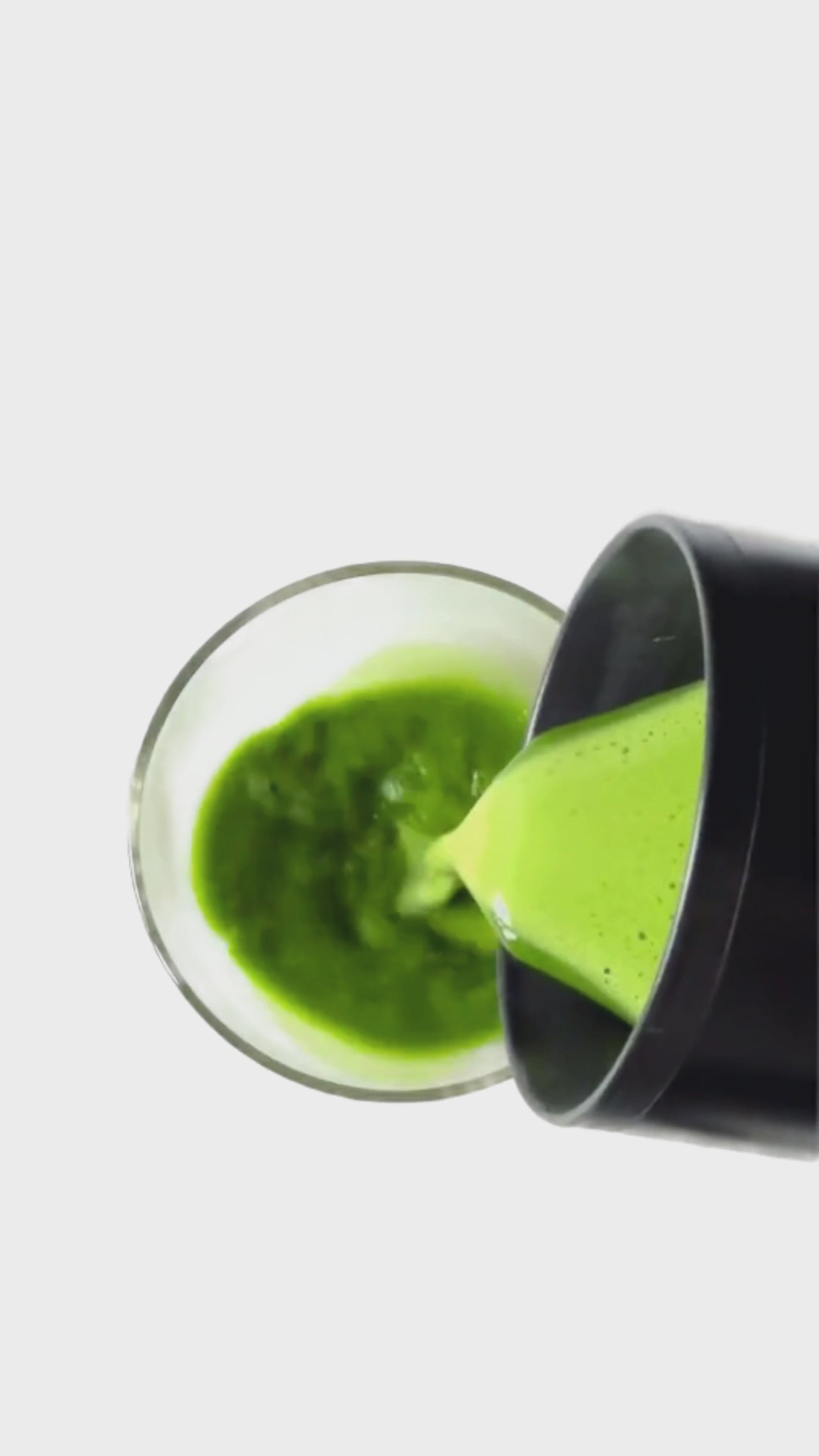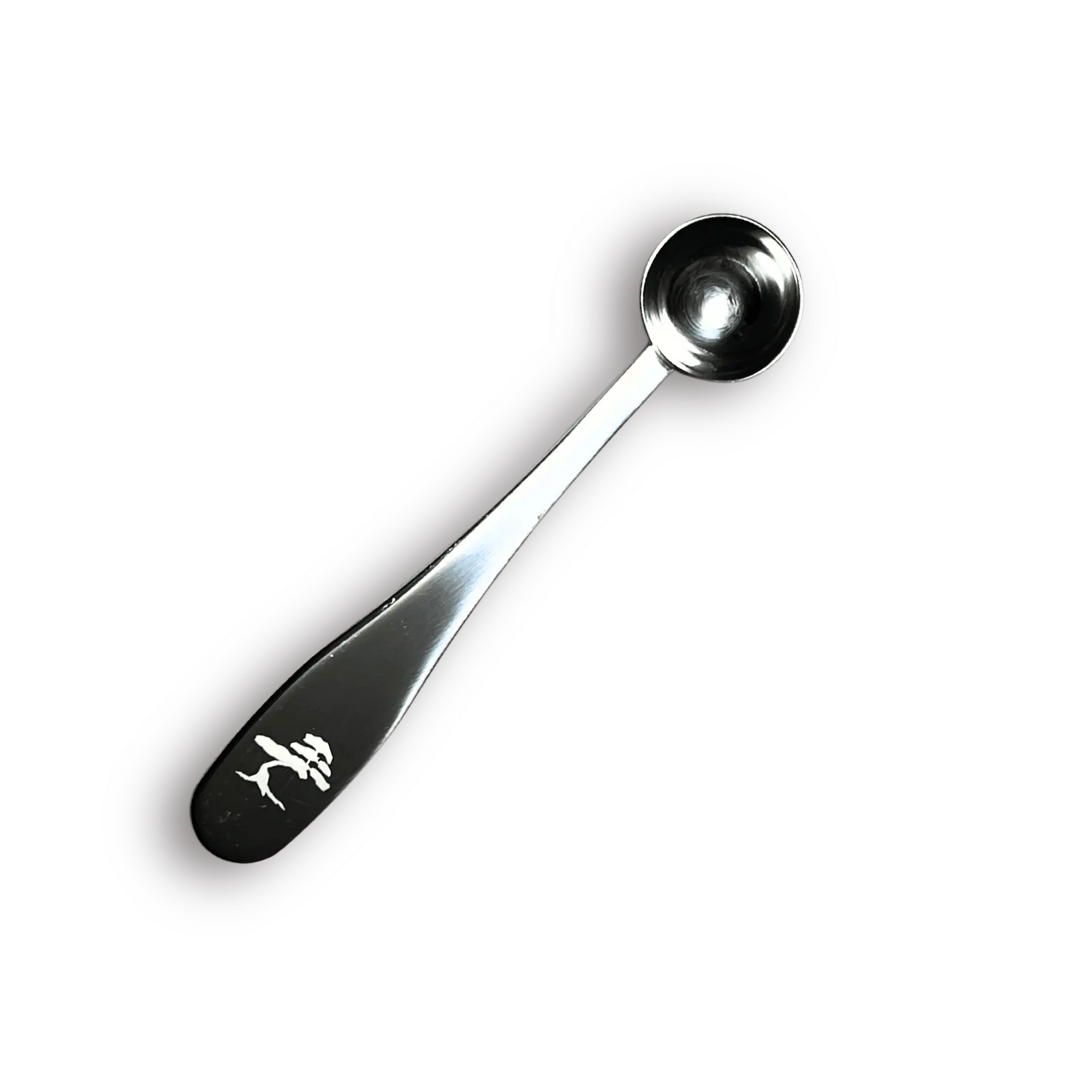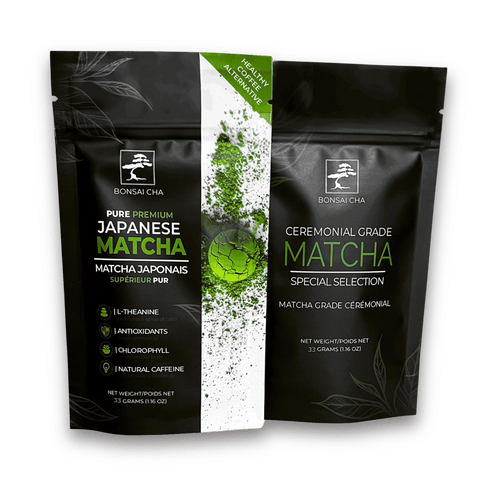Matcha For Your Gut: How Matcha May Help Digestive Health, GERD and Acid Reflux

Matcha is a powdered green tea that has become increasingly popular due to its numerous health benefits. You might already know that matcha is great for boosting energy and focus, but did you know it can also do wonders for your digestion?
This vibrant green tea has been gaining attention for its potential to help with digestive issues, including acid reflux and GERD.
In this post, we’ll take a closer look at how matcha can benefit your gut, ease those uncomfortable symptoms, and fit seamlessly into your daily routine for better digestive health.
Key Takeaways
- Matcha Supports Digestive Health: Rich in antioxidants like catechins, matcha may help reduce inflammation in the digestive system, which could alleviate symptoms of GERD and acid reflux.
- Neutralizes Stomach Acid: Matcha’s natural alkalinity helps neutralize excess stomach acid, potentially easing discomfort from acid reflux.
- Promotes a Healthy Gut Microbiome: The polyphenols in matcha act as prebiotics, promoting a balanced gut microbiome, which is vital for overall digestive health.
- Stress Relief and Digestive Health: L-Theanine in matcha helps reduce stress, which can help mitigate stress-induced GERD and acid reflux symptoms.
- Customizable for Sensitive Stomachs: Matcha can be tailored to individual needs, whether by using non-dairy milk, adjusting temperature, or pairing with alkaline foods, making it suitable for those with sensitive digestive systems.
- Potential Drawbacks: Matcha can cause discomfort in some individuals due to its caffeine content, tannins, or high fiber. To minimize these effects, it’s best to start with small servings, consume matcha with food, and stay hydrated.
- High-Quality Matcha Matters: Choosing ceremonial-grade matcha ensures higher nutrient content and fewer additives, making it a better choice for those with digestive concerns like GERD or acid reflux.
- Mindful Consumption: Matcha is a gentler, less acidic alternative to coffee for those with GERD, but it should be consumed in moderation and tailored to individual tolerance levels.
Contents
- What is Matcha?
- What is Acid Reflux and GERD?
- How Matcha May Support Digestive Health and GERD
- The Role of L-Theanine in Alleviating Stress-Induced GERD and Acid Reflux
- Drinking Matcha for Digestive Health: Matcha Latte for Your Gut
- Matcha Recipes for Digestive Health
- Potential Drawbacks of Drinking Matcha
- Choosing the Right Matcha for GERD and Acid Reflux Relief
- Matcha and Gut Microbiome: Impact on GERD and Acid Reflux
- Tips for Incorporating Matcha into Your Routine for GERD and Acid Reflux Relief
- Personalizing Your Matcha Experience for GERD Relief
- Matcha vs. Coffee: Which is Better for GERD and Acid Reflux?
- Conclusion
- Frequently Asked Questions (FAQ)
Don't 'Cha Wanna Be in the Know?
Join our matcha community and be the first to receive insider tips, special offers and exclusive deals delivered to your inbox.
What is Matcha?
If you're out of the loop and don't know what matcha is, matcha is a unique and distinctive type of green tea that has been enjoyed in Japan for centuries.
What makes it stand out? It’s all in the process.
Matcha comes from shade-grown tea leaves, which are carefully harvested, steamed, and dried before being ground into a fine, vibrant green powder.
This unique method gives matcha its rich flavor and powerhouse of nutrients. Since matcha uses the entire tea leaf, you’re getting way more antioxidants, vitamins, and minerals compared to regular green tea. Matcha actually contains up to ten times the antioxidants of a typical cup of green tea.
What is Acid Reflux and GERD?
Let’s break it down: acid reflux happens when stomach acid sneaks back up into your esophagus, leading to that burning feeling we all know as heartburn. It can also cause regurgitation and even make swallowing a bit of a challenge.
GERD, or gastroesophageal reflux disease, is like acid reflux’s more serious cousin. It’s a chronic condition that can cause ongoing discomfort and long-term damage to your esophagus.
The main culprit?
The lower esophageal sphincter (LES)—the muscle that’s supposed to keep stomach acid where it belongs. When the LES isn’t doing its job, acid and food can flow back up, leading to persistent heartburn and other not-so-fun symptoms.
Managing acid reflux and GERD often means making some lifestyle and dietary tweaks to keep those flare-ups in check.
How Matcha May Support Digestive Health and GERD
When it comes to digestive health, matcha might be the green hero you didn’t know you needed. It’s packed with antioxidants, especially catechins like EGCG, which are known for their anti-inflammatory powers.
These little compounds can help calm down inflammation in your digestive system, which could be a game-changer if you’re dealing with acid reflux or GERD.
While we’re still learning more about matcha’s full potential, what we know so far suggests that sipping on matcha could be a smart move for keeping your gut happy and healthy.
Alkalizing Effects and Reduced Acidity
Packed with antioxidants—especially catechins like EGCG—matcha is known for its anti-inflammatory properties, which could help soothe your digestive system and ease some of the discomfort associated with these conditions.
However, some studies have indicated that tea consumption may increase the risk of GERD, so it’s important to consider your individual response and consume matcha in moderation.
Reducing Inflammation with Matcha
The anti-inflammatory properties of matcha’s antioxidants can be beneficial in managing digestive discomfort, which may help ease the inflammation of the esophagus caused by GERD.
Note that these benefits should be considered as part of a holistic approach to digestive health, including combing matcha with alkaline foods and healthy lifestyle choices.
Digestive Benefits Beyond GERD
Matcha also offers general digestive health benefits. Studies have shown that the high chlorophyll content in matcha acts as a natural detoxifier, helping to remove toxins from the body and improve digestion.
Additionally, matcha contains soluble fiber, which is essential for maintaining a healthy digestive system. Regular consumption of matcha may help alleviate common digestive issues such as constipation, bloating and indigestion.
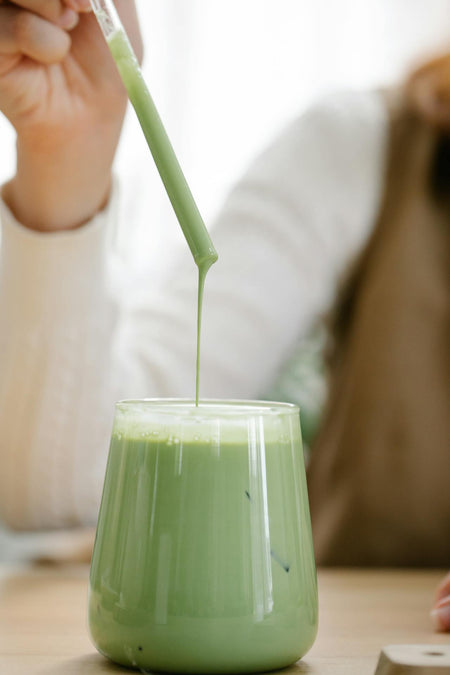
The Role of L-Theanine in Alleviating Stress-Induced GERD and Acid Reflux
Stress is a significant factor that can exacerbate GERD and acid reflux symptoms. When you're stressed, your body can produce excess stomach acid, which may lead to more frequent or severe episodes of acid reflux.
This is where L-Theanine, an amino acid found in matcha, may help.
L-Theanine is known for its calming effects on the mind and body. It promotes relaxation without causing drowsiness, which can help to reduce stress levels.
By lowering stress, L-Theanine may indirectly help to prevent the onset of stress-induced GERD and acid reflux symptoms. When you’re less stressed, your body is less likely to produce excessive stomach acid, leading to fewer instances of acid reflux.
Incorporating matcha into your daily routine can be a natural way to manage stress and, by extension, potentially reduce the frequency and severity of GERD and acid reflux episodes. This makes matcha not just a delicious and healthful beverage, but also a tool for maintaining better digestive health, especially for those who suffer from stress-related digestive issues.
Drinking Matcha for Digestive Health: Matcha Latte for Your Gut
Matcha lattes have become a popular and tasty way to enjoy the benefits of matcha.
Made by blending matcha powder with milk and a sweetener, this creamy drink is not only delicious but also offers a gentle option for those with sensitive stomachs.
For individuals dealing with digestive issues, incorporating a matcha latte into their routine can be a soothing way to enjoy matcha’s potential benefits. The natural antioxidants and calming properties of matcha, combined with the creaminess of milk, create a beverage that’s both nourishing and easier on the digestive system.
Bonsai Cha Digestive-Friendly Matcha Latte
To make a matcha latte for digestive health, the Bonsai Cha Matcha Maker can be used. It simplifies the process—just add water and matcha, and press a button to create a perfectly blended matcha in just 90 seconds.
Ingredients:
- 1 teaspoon Bonsai Cha Special Selection Ceremonial Grade Matcha Powder
- 165 ml of water
- 3/4 cup milk of your choice (dairy or non-dairy, such as almond, oat, or coconut milk)
- Ice
- 1 teaspoon honey, maple syrup, or stevia (optional, for sweetness)
- A pinch of ground cinnamon or ginger (optional, for added digestive benefits)
Instructions:
- Add water to your matcha maker.
- Add your matcha powder, blend.
- Add ice and pour milk into your favorite glass.
- Pour matcha over milk.
- Add sweeter, cinnamon and ginger.
- Enjoy the digestive benefits!
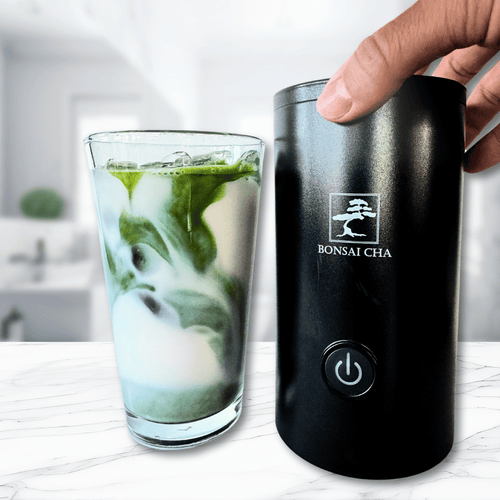
Matcha Recipes for Digestive Health
In addition to matcha lattes, there are many other ways to incorporate matcha into your daily routine. Here are a few recipes to try:
Matcha Smoothie Bowl
Ingredients:
- 1 frozen banana
- 1 cup spinach leaves
- 1 teaspoon matcha powder
- 1/2 cup milk (dairy or non-dairy)
Instructions:
- Add all the ingredients to a blender and blend until smooth.
- Pour the smoothie into a bowl.
- Top with your favorite toppings, such as fresh berries, sliced bananas, chia seeds, or granola.
This smoothie bowl is not only delicious but also supports gut health by combining the benefits of matcha with fiber-rich ingredients.
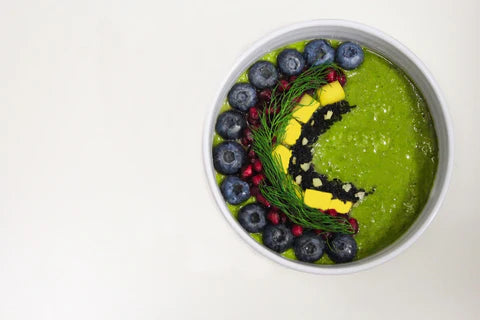
Matcha Overnight Oats
Ingredients:
- 1/2 cup rolled oats
- 1 tablespoon chia seeds
- 1 teaspoon matcha powder
- 1/2 cup milk (dairy or non-dairy)
Instructions:
- In a jar or container with a lid, mix together the oats, chia seeds, matcha powder, and milk until well combined.
- Cover and refrigerate overnight.
- In the morning, give the oats a stir and top with your favorite toppings, such as sliced banana, chopped nuts, or honey.
These matcha overnight oats provide a fiber-packed start to your day, promoting healthy digestion.
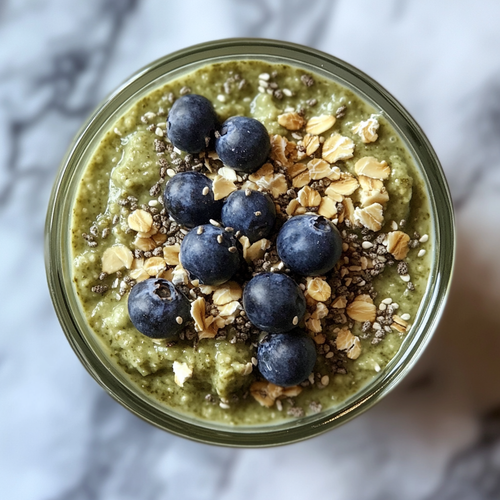
Matcha Chia Pudding
Ingredients:
- 1/4 cup chia seeds
- 1 cup milk (dairy or non-dairy)
- 1 teaspoon matcha powder
- 1 tablespoon sweetener (honey, maple syrup, or agave)
Instructions:
- In a bowl, whisk together the chia seeds, milk, matcha powder, and sweetener until well combined.
- Cover the bowl and refrigerate for at least 2 hours, or until the mixture has thickened and turned into a pudding-like consistency.
- Give the pudding a stir and top with your favorite toppings, such as fresh fruit, coconut flakes, or chocolate chips.
Matcha chia pudding is a nutrient-dense snack that supports digestive health through its high fiber content.

Psst... Use the secret code BONSAIBLOG at checkout to
GET A FREE PREMIUM MATCHA
($33 CAD VALUE)
with any purchase of matcha powders or matcha kits
(Limited to 1 per customer)
Potential Drawbacks of Drinking Matcha
While matcha is generally considered safe and well-tolerated, it's important to be aware of some potential side effects, especially when consumed in large quantities.
Caffeine Sensitivity
One of the most common side effects of matcha is related to its caffeine content. A single serving of matcha can contain up to 70 milligrams of caffeine, depending on the quality and preparation method.
For individuals who are sensitive to caffeine or have pre-existing conditions like heart disease or anxiety, consuming too much matcha can lead to jitteriness, insomnia, headaches, and other unpleasant symptoms. It's important to start with small servings of matcha and gradually increase your intake to gauge your individual tolerance.
Gastrointestinal Discomfort
Additionally, some people may experience gastrointestinal discomfort, such as nausea, bloating, or diarrhea, when consuming matcha. This can be due to the high fiber content of the powder, which may be unfamiliar to those new to matcha.
Tannin-Related Discomfort
Tannins, natural compounds found in matcha, can also contribute to gastrointestinal discomfort, particularly if matcha is consumed on an empty stomach or in large amounts. Tannins can bind to proteins and digestive enzymes, potentially leading to stomach irritation, nausea, or an astringent sensation.
To minimize these effects:
- Consume Matcha with Food: Drinking matcha with a small meal or snack can help buffer the stomach and reduce potential irritation from both tannins and caffeine.
- Start with Smaller Servings: Gradually increasing your matcha intake allows your body to adjust to its fiber and tannin content.
- Use Non-Dairy Milk: Pairing matcha with non-dairy milk, such as almond or oat milk, can reduce the astringency and make the drink gentler on your stomach.
- Stay Hydrated: Drinking plenty of water alongside your matcha helps dilute tannins and caffeine, minimizing their potential impact on your digestive system.
By following these tips, most people can enjoy the health benefits of matcha while avoiding potential discomforts.
Choosing the Right Matcha for GERD and Acid Reflux Relief
When selecting matcha for GERD and acid reflux relief, it's essential to choose a high-quality matcha. Not all matcha is created equal, and lower-quality matcha may contain additives, fillers, or impurities that could aggravate acid reflux symptoms.
Ceremonial grade matcha, made from the youngest tea leaves, is the best choice for those with GERD or acid reflux. This grade of matcha is the purest, containing the highest concentration of beneficial nutrients like catechins, L-Theanine and chlorophyll. These components can help soothe the digestive tract, reduce inflammation, and promote overall digestive health.
Matcha and Gut Microbiome: Impact on GERD and Acid Reflux
For many, coffee is a morning must-have, but if you’re dealing with GERD or acid reflux, it can be a bit of a double-edged sword.
The high acidity and caffeine content in coffee are well-known triggers for discomfort, heartburn, and other reflux symptoms, especially for those with sensitive digestive systems.
That’s why managing GERD often means cutting back on acidic and spicy foods, including coffee.
Unlike coffee, matcha is less acidic, with a pH of around 7.5 compared to drip coffee’s more acidic range of 4.5 to 6. This lower acidity makes matcha a potentially better choice if you’re looking to avoid triggering reflux symptoms.
While matcha does contain caffeine, it’s in lower amounts than coffee, which helps reduce the risk of overstimulating your stomach. Plus, matcha provides a smoother, more sustained energy boost without the sharp spikes and crashes that coffee can sometimes cause.
Beyond that, matcha’s alkalizing effect might help neutralize stomach acid, offering some relief from acid reflux.
Tips for Incorporating Matcha into Your Routine for GERD and Acid Reflux Relief
Making matcha part of your daily routine may offer relief from GERD and acid reflux, but it's important to do so thoughtfully to avoid triggering symptoms.
Here are some tips to help you get the most out of matcha without aggravating your digestive system:
- Start with Small Amounts: If you're new to matcha or have sensitive digestion, start with a small amount, such as 1/2 teaspoon of matcha powder. Gradually increase the amount as your body adjusts.
- Avoid Drinking Matcha on an Empty Stomach: While matcha is less acidic than coffee, drinking it on an empty stomach can still potentially irritate some individuals. Try consuming matcha with a small meal or snack to buffer the effects on your stomach.
- Pair Matcha with Alkaline Foods: Alkaline foods like leafy greens, almonds, and bananas can help neutralize stomach acid. Pairing your matcha with these foods can enhance its alkalizing effects, making it gentler on your digestive system.
- Experiment with Different Preparations: Whether you enjoy matcha as a latte, smoothie, or traditional tea, experimenting with different preparations can help you find what works best for your digestive health. Some people find that mixing matcha with non-dairy milk like almond or oat milk is easier on their stomachs.
- Monitor Your Body’s Response: Pay close attention to how your body reacts to matcha. If you notice any discomfort, adjust the timing, preparation, or quantity of matcha you consume.
By following these tips, you can enjoy the benefits of matcha while minimizing the risk of triggering GERD or acid reflux symptoms.
Personalizing Your Matcha Experience for GERD Relief
Everyone’s digestive system is different, so it’s important to personalize your matcha experience to suit your specific needs. Here are some ways to tailor your matcha routine for maximum GERD relief:
- Choose Non-Dairy Milk: Dairy products can sometimes trigger acid reflux symptoms. Consider using non-dairy milk alternatives like almond, oat, or coconut milk in your matcha lattes to reduce the risk of irritation.
- Incorporate Matcha into Meals: Instead of drinking matcha on its own, try incorporating it into meals. Adding matcha to smoothies, oatmeal, or chia pudding can provide a gentler experience on your digestive system.
- Experiment with Temperature: Some people find that hot beverages can trigger acid reflux, while others may be more sensitive to cold drinks. Experiment with both hot and cold matcha preparations to see which works best for you.
- Add Soothing Ingredients: Ingredients like ginger, turmeric, or honey can complement matcha and provide additional digestive benefits. These ingredients have anti-inflammatory properties that can help soothe the digestive tract and reduce GERD symptoms.
- Adjust the Timing: The timing of when you consume matcha can also play a role in how it affects your GERD symptoms. Some people find that drinking matcha in the morning works best, while others may prefer it in the afternoon. Pay attention to how your body responds and adjust accordingly.
Matcha vs. Coffee: Which is Better for GERD and Acid Reflux?
Coffee is a well-known trigger for GERD and acid reflux due to its high acidity and caffeine content. While many people rely on coffee to start their day, it can cause discomfort, heartburn, and other reflux symptoms for those with sensitive digestive systems. To manage GERD, individuals often avoid acidic and spicy foods, including coffee, as these can exacerbate symptoms.
Matcha green tea, however, offers a gentler alternative. Unlike coffee, matcha is less acidic, making it a potentially better choice for those with GERD. For instance, matcha has a pH of around 7.62, compared to the more acidic drip coffee, which has a pH of 4.85 to 5.10.
Additionally, while matcha does contain caffeine, it is present in lower amounts than in coffee, reducing the risk of overstimulating the stomach and triggering acid reflux.
Matcha provides a more balanced and sustained energy boost without the harsh side effects often associated with coffee, such as increased acid production and dependency. Its alkalizing effect may further help neutralize stomach acid, offering relief from acid reflux symptoms.
For those looking to manage GERD while still enjoying a caffeinated beverage, matcha presents a more stomach-friendly option.
Conclusion
Matcha offers a potential natural approach to supporting digestive health, particularly for those dealing with acid reflux and GERD.
Its natural alkalinity, high levels of catechins, and anti-inflammatory properties may help reduce inflammation, providing relief from symptoms. Additionally, matcha’s chlorophyll and fiber content contribute to overall digestive wellness by promoting detoxification and regularity.
For the best results, choose high-quality ceremonial-grade matcha and incorporate it into your daily routine in various forms, such as lattes, smoothies, or traditional tea.
However, matcha should be consumed in moderation and may not be right for everyone. Start with small amounts and gauge your reaction. By enjoying matcha in moderation, you can support a healthier digestive system and overall well-being.
MAINTAIN YOUR GUT HEALTH WITH BONSAI CHA
Sorry, there are no products in this collection
Frequently Asked Questions (FAQ)
- Does matcha irritate acid reflux?
Matcha is generally considered gentler on the stomach compared to coffee due to its lower caffeine content and alkalizing properties. However, individual responses can vary. Starting with small amounts and consuming matcha with food can help reduce the risk of irritation. - Is matcha safe to drink on an empty stomach if you have GERD?
While matcha is less acidic than coffee, it may still cause discomfort for some people when consumed on an empty stomach. It’s best to drink matcha with a small meal or snack to minimize the risk of triggering acid reflux symptoms. - Can matcha help with both GERD and acid reflux?
Yes, matcha may help with both GERD and acid reflux due to its alkalizing effects, anti-inflammatory properties, and ability to promote a healthy gut microbiome. However, it should be consumed mindfully to avoid any potential triggers.
Related Articles:
- Soothing Acid Reflux Naturally: Comparing Matcha to Other Natural Acid Reflux Remedies
- Matcha for IBS: Symptom Management, Gut Health, and Beyond
- Discover the Soothing Benefits of Matcha for Bloating
- Superfoods: The Key to Optimal Digestion and Robust Gut Health
- How the Nutritional Composition of Matcha Benefits Yout Gut
The information provided in this article is for informational purposes only and is not intended to be a substitute for professional medical advice, diagnosis, or treatment. Always seek the advice of your physician or other qualified health provider with any questions you may have regarding a medical condition. Never disregard professional medical advice or delay in seeking it because of something you have read in this article. This content is not intended to diagnose, treat, cure, or prevent any disease.

